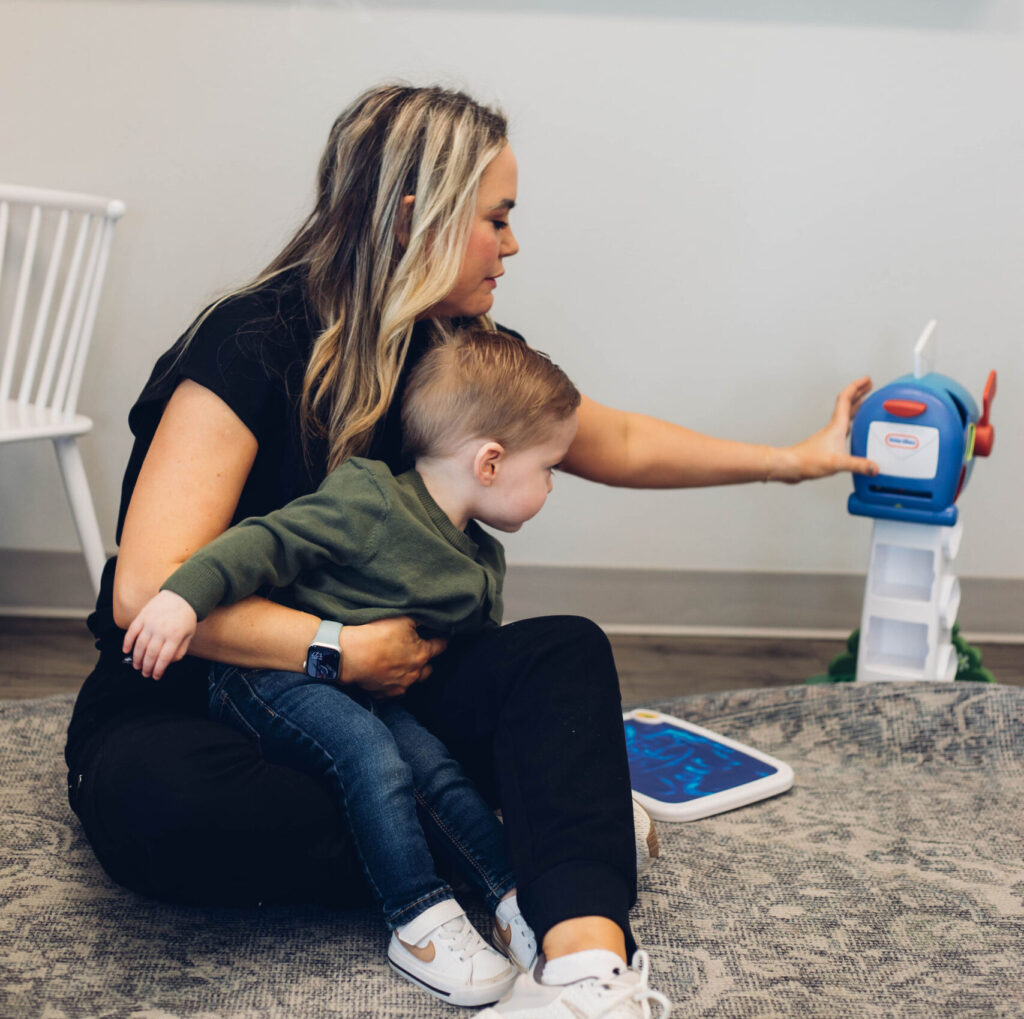Today, I want to talk about speech and language therapy for children. Think of how often you communicate with other people throughout the day: ordering something at the drive-through, talking to your boss or colleagues, chatting with friends and family, and so many more. Being able to communicate easily with other people is important for happiness, success, and good relationships.
Now imagine what your life would be like if you couldn’t pronounce certain sounds easily, or if you had a stutter. Imagine if you couldn’t really understand what other people were asking of you, or if other people could never really understand what you were trying to say. That would be really hard, right?
Well, that’s what we address with pediatric speech and language therapy. Some children have a harder time with the act of speaking, and some have trouble understanding other people or making themselves understood.
Who Can Benefit from Speech and Language Therapy?
The great thing about speech and language therapy is that it can help children with a wide range of communication difficulties. It’s not limited to children who have trouble with words, either. Many of the children our speech-language pathologists (SLPs) work with have conditions such as:
- Hearing loss
- Traumatic brain injuries
- Autism
- Down syndrome
- Stutters
Therapy can involve finding better ways for your child to communicate, working on expressing themselves, and even improving their nonverbal language skills, as well as the actual act of speaking itself.
Signs Your Child May Need Speech and Language Therapy
Whether or not your child has any of the conditions listed above, there are certain signs to watch out for in their development that may indicate a need for therapy. Some common signs parents notice include:
- Speech delays in preschool-aged children
- Friends, caregivers, and teachers don’t understand them easily
- Being asked to repeat things often
- Bullied for speech problems
- Not understanding simple instructions
- Getting frustrated or upset because others can’t understand them
How to Tell If Your Child Is Missing Early Speech and Language Milestones
If your child is still a baby or young toddler, the signs that they’re having trouble with speech and language are not quite as easy to see. But when you know what to look for, you’ll be able to tell if you might need to take your child to an SLP for an evaluation. Here are some common signs for babies in different age groups:
- Babies 0–3 months old
- May not smile much
- Don’t interact with others, like looking at you when you speak
- Don’t react much when being spoken to
- Babies 4–7 months old
- Don’t make babbling sounds, like “bababa”
- Don’t experiment much with what sounds they can make
- Babies 7–12 months old
- Doesn’t wave, point, or use their hands to communicate
- Isn’t very chatty or vocal
- Doesn’t seem to understand what others are saying
- Toddlers 12–24 months old
- Don’t speak very much
- Have trouble with p, b, h, m, and w sounds
- Don’t put words together to make simple sentences i.e. mama go, no ball
- Toddlers 24–36 months old
- Have trouble with k, g, d, t, f, and n sounds
- Has difficulty talking or playing with other children
- Others understand less than 50% of the child’s
If you start noticing any of these signs with your baby or toddler, you should bring it up with their pediatrician or visit us for a speech and language therapy evaluation. The sooner we can start practicing and improving the skills your child needs for good communication, the easier it will be for them to succeed.
What Is Speech and Language Therapy Like?
We want your child to have fun at their therapy sessions, so a lot of the activities we do with them will be very playful. We may play imitation games, pretend, read, sing, or do any number of activities that keep your child engaged. It’s important to keep it fun. Our SLPs also make sure to always model the correct behavior, and that means how we speak, but it also means how we listen and express ourselves.
Our therapists love to have parents involved! Our SLPs will provide parents with feedback and activities to do at home to encourage speech and language development.
So if your child is struggling with speaking, communicating their ideas, or understanding others, give us a call at (318) 746-1199 today for a free phone screening!

